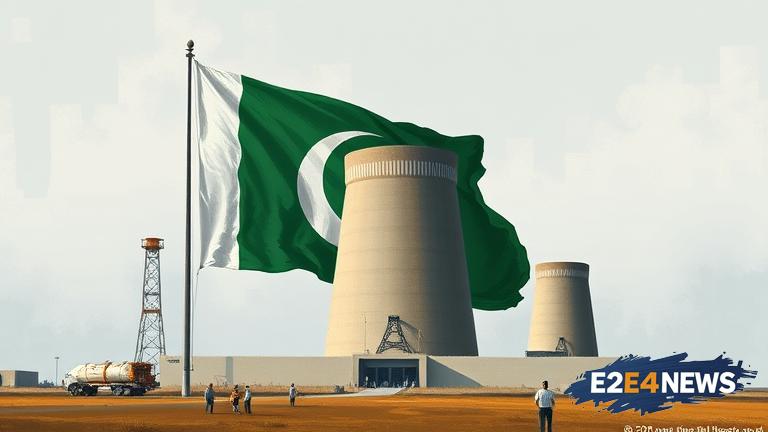Pakistan’s Prime Minister Shehbaz Sharif has come out in strong defence of the country’s nuclear programme, stating that it is essential for the nation’s peace and self-defence. In a recent statement, Sharif emphasized that Pakistan’s nuclear capabilities are a deterrent against any potential threats and are not intended for aggression. The Prime Minister’s comments come at a time when the international community has been expressing concerns over the safety and security of Pakistan’s nuclear arsenal. Sharif reassured the world that Pakistan’s nuclear programme is fully secure and under the strict control of the country’s military and civilian authorities. He also highlighted the fact that Pakistan has been a responsible nuclear state and has taken all necessary measures to prevent the proliferation of nuclear weapons. The Prime Minister’s defence of the nuclear programme is seen as a response to the criticism from some quarters that Pakistan’s nuclear arsenal is a threat to regional and global stability. Sharif argued that Pakistan’s nuclear programme is a necessary evil in the face of the country’s geopolitical realities, including the threat from neighbouring India. He also pointed out that Pakistan has been actively engaged in international efforts to promote nuclear disarmament and non-proliferation. Despite the international pressure, Sharif made it clear that Pakistan will not compromise on its nuclear programme, which is seen as a vital component of the country’s national security. The Prime Minister’s statement has been welcomed by many in Pakistan, who see the nuclear programme as a source of national pride and a symbol of the country’s sovereignty. However, the statement has also been criticized by some, who argue that the nuclear programme is a drain on the country’s resources and a distraction from more pressing issues such as poverty and education. The debate over Pakistan’s nuclear programme is likely to continue, with some arguing that it is a necessary measure for the country’s security and others seeing it as a threat to regional and global stability. In recent years, Pakistan has made significant strides in developing its nuclear capabilities, including the development of new missile systems and the expansion of its nuclear power programme. The country has also been actively engaged in international efforts to promote nuclear safety and security, including the Nuclear Security Summit. Despite these efforts, Pakistan’s nuclear programme remains a source of concern for many in the international community, who fear that it could fall into the wrong hands or be used for aggressive purposes. The Prime Minister’s defence of the nuclear programme is seen as an attempt to reassure the world that Pakistan is a responsible nuclear state and that its nuclear programme is fully secure. However, the statement is unlikely to alleviate all concerns, and the debate over Pakistan’s nuclear programme is likely to continue in the coming months and years. The international community will be watching closely to see how Pakistan’s nuclear programme evolves in the coming years, and whether the country can balance its need for national security with its commitment to nuclear safety and security.
